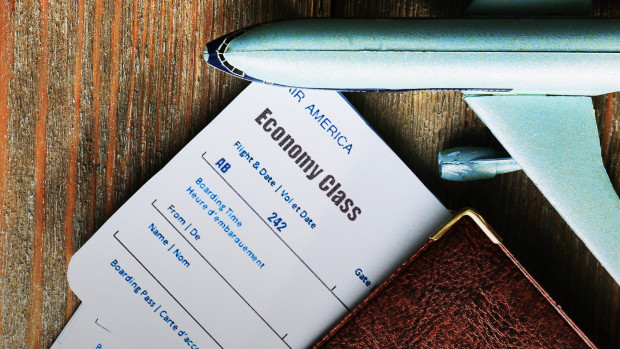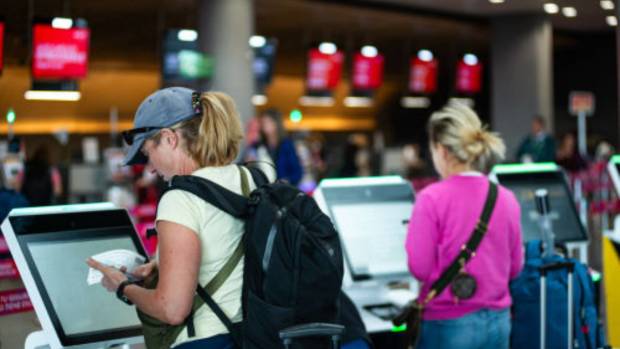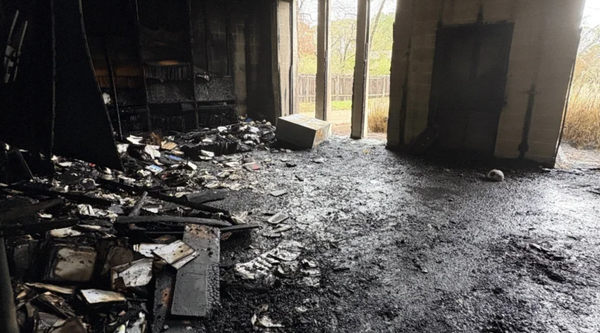
When purchasing airline tickets, a number of factors run through a traveler's mind.
Some people have a favorite airline they want to book with, to amass points for future travel or simply because they have good customer experiences with the carrier.
DON'T MISS: Iconic American retailer reportedly ready to file bankruptcy
A number of options are available, including booking directly with the airline and using an online service such as Expedia (EXPE) -), where hotels and rental cars can be easily packaged in a travel deal.
Some passengers travel stand-by, hoping for a seat to open at the last minute. Others show up at the gate looking for an upgrade to first class.
Airlines themselves are always trying to maximize efficiencies with the seats available on their airplanes. They oversell flights with the knowledge that not all ticketed passengers will show up.
The carriers try to predict the number of passengers that won't actually be boarding the flights they have booked.
This leads to airlines encouraging passengers to accept offers to take alternative routes to their destinations. When this doesn't work out perfectly, some passengers are simply bumped from their flights.
"When more passengers do show up than an airline has seats they will try to convince some people to take a later flight, by offering them flight credits or cash," wrote Gary Leff on View From the Wing. "Usually they will offer less than they are required to pay when they involuntarily bump someone (which can be up to $1,550 cash). Delta (DAL) -) will still frequently offer more than this to avoid involuntary bumps."
"This gets expensive," Leff continued. "So airlines have taken to reaching out to passengers in advance to move them to other flights, and have tried to get them to volunteer in advance through the app at specific lower compensation amounts, trying to avoid bidding situations at the gate."
In these cases, it's the airline that is in control of the process.

Getty Images
A StubHub-style model for airline tickets
Mexico's Viva Aerobus, Leff reports, is in the process of building a digital scalping model for this, similar to the way StubHub offers an online forum for buying and selling tickets to concerts and sporting events.
In the subscription-only newsletter Airline Observer, Brian Sumers outlined the idea, according to Leff. Sumers quoted Viva Aerobus CEO Juan Carlos Zuazua discussing the strategy.
Soon, he said, Viva will introduce a new approach: It is launching a marketplace, with a third-party vendor, allowing passengers who book in advance to trade their tickets to last-minute high-fare passengers. Zuazua likened it to Stubhub, a resale marketplace for event and game tickets. Viva will still overbook, but Zuazua envisions turning to this this platform when Viva wants to sell more tickets at the last minute.
Rather than raise the cap and assume it can buy off 10 more customers, Viva will not open a seat on a sold-out flight until a customer paying a lower fare on the same flight accepts an offer to switch to a less-busy departure.
"What if you can get five more seats by brokering a buyer-seller interaction before they get to the airport?" Zuazua said. "Look at this like a Stubhub or a Ticketmaster model. A high-demand flight is not different from a sporting event or a concert that is sold out. You can broker between a buyer and a seller who is willing to fly on another day or at another hour."
This wouldn't be as effective for airlines without change fees, Leff notes.
Change fees refer to the money passengers are forced to pay in addition to fares when they change from their originally scheduled flight to a new one.
"That customer would just roll over the full credit for their ticket towards future travel," Leff wrote. "Instead it works best where tickets are completely non-refundable and non-changeable."
Get exclusive access to portfolio managers and their proven investing strategies with Real Money Pro. Get started now.







